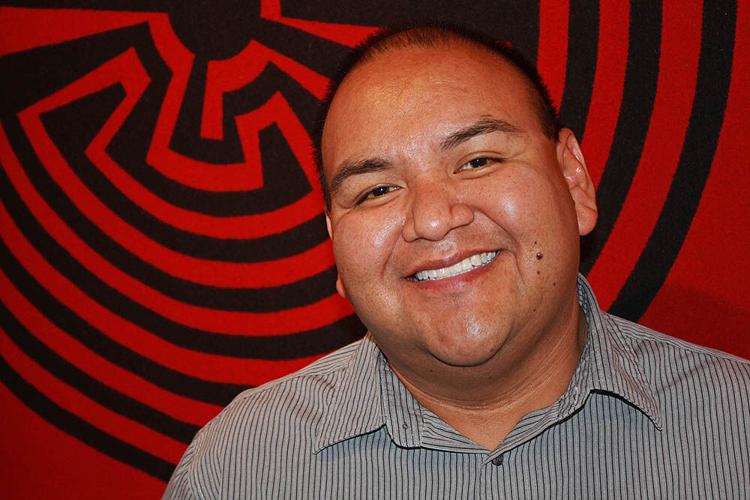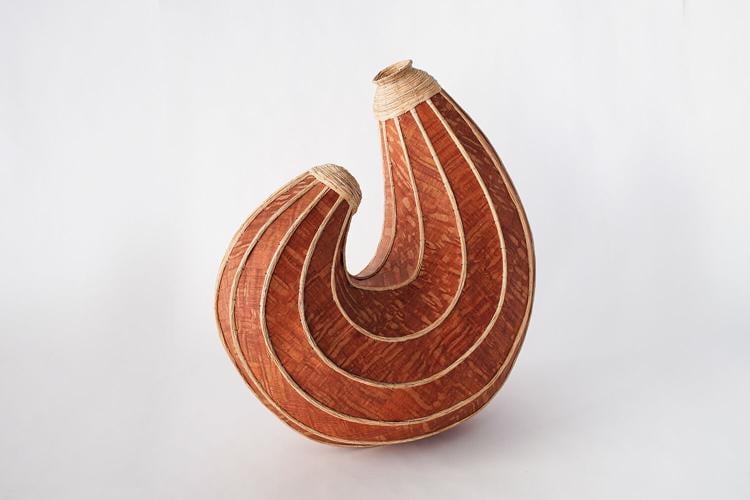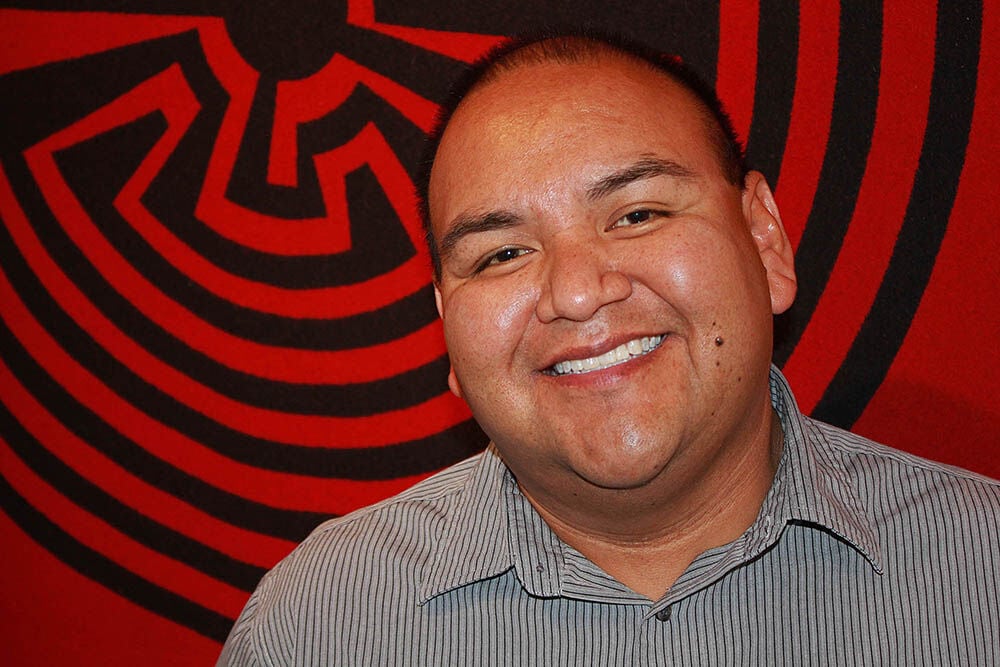Terrol Dew Johnson, a Tohono O’odham basket weaver whose work is displayed in permanent collections in the Smithsonian’s National Museum of the American Indian, was awarded $100,000 from the Maxwell/Hanrahan Foundation for his emerging art among craftspeople and artists across the country.
Johnson, of Sells, was among five crafters nationwide recognized with $100,000 each for “their work that honors and expands their roles as stewards of cultural traditions, innovators and integrators,” according to the San Francisco Bay area foundation’s recent announcement. Each craftsperson received the unrestricted funds to support them “as they grow in their careers and propel their work forward.”
Sells, 60 miles southwest of Tucson, is the capital of the Tohono O’odham Nation, which is nearly the size of Connecticut. The nation’s lands span 75 miles of U.S.-Mexican border and extend up to the Casa Grande, Gila Bend and Florence areas.

Form Over Function by Terrol Dew Johnson, 2014. Wood, Bear Grass, Sinew
“My practice is rooted in the traditional techniques and cultural memory passed on by my mentors and community,” said Johnson in a prepared statement announcing the award May 18. “It is essential that my work carry the past and gather what is available in the present; whether that be technologies, tools, materials, or forms. All materials are from the land and I know the importance of giving back to the environment. This is what I have been taught and this is what I teach. I consider my art and activism one in the same, and as a call from necessity,” Johnson said.
The basket weaver, who is in his late 40s, said he took lessons as a boy from women who taught the art, and as he got older his grandparents took him to classes of a well-known O’odham basket weaver, Clara Havier, who only spoke O’odham. Johnson’s grandparents translated for him and he learned the art and designs. His teachers always told him to create his own style.
In addition to basket weaving, Johnson is a community activist who helped revive farming of traditional foods on the Tohono O’odham Nation in hope of reducing the number of diabetics, which is at epidemic proportions. He is growing foods including tepary beans, corn, squash and melons on family land, the Alexander Pancho Memorial Farm. Traditional desert foods, such as cholla buds, mesquite beans and nopalitos, or cactus pads, helps prevent and treat diabetes because the foods have compounds that regulate blood-sugar levels.
Johnson knows the importance of diet and exercise. In 1996, he was diagnosed with Type 2 diabetes and doctors gave him facts about the progressive disease that can lead to amputation, blindness and kidney failure. He witnessed these facts living in Sells.

Big Gourd Basket by Terrol Dew Johnson, 2000. Gourd, Bear Grass, Waxed Nylon
The artist is chair of the board for the Ajo Center for Sustainable Agriculture, which has continued programs of the now closed nonprofit Tohono O’odham Community Action, which Johnson co-founded in 1996 with friend Tristan Reader. Through the community action organization they revived traditional foods and eating healthy, which is the focus of the Ajo center, a Native American non-profit that provides agricultural education, reduces barriers to healthy and culturally-appropriate foods, and preserves and revitalizes agricultural traditions.
Twenty-six years ago, Johnson also founded the Tohono O’odham Basket-weavers Organization to provide fair prices for weavers who were only getting 10% of the retail price for their work when they sold it to a trader. The organization ensured that the weavers received about 80% of the retail price.
Johnson also taught basket-weaving, pottery-making and photography to children, and continues passing down traditional teachings he has learned from his elders about the O’odham way of life.







